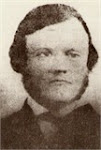Transit economics - fact vs fiction
Despite low usage and a bad public image, the economics of mass transit are still quite good, in Monona as well as many other cities. While many people like to claim that we would be better off hiring taxis for people, the economics of such a proposal is
horrible compared to the value of mass transit.
The facts: In Monona, 25 commuters, on average, use the Express every day. Thus, 4 bus loops replace 25 vehicles, twice a day, which reduces congestion and reduces wear and tear on the roads. The cost of the Express is about half the total transit budget for the year, or $80,000. Of this total cost, the Monona taxpayer contributes 20%, or $16,000. Fares account for another $16,000, and state matching funds, etc pick up the rest.Compare this to the average cost to own and operate a car, with parking costs, etc, being $7000/year. Let’s say that half this cost is for commuting, and half is personal use (errands, etc). For the 25 commuters, the total auto ownership costs would be $ 175,000 (25 x $7000); half of this would be $87,500. For the riders, the fare cost is $22,500, compared to $87,500 for half the cost of auto ownership; and in exchange for the inconvenience, they not only save all this money, but they get to socialize, read, sleep, whatever, while going to work, AND the roads are less congested for the rest of us.
If these 25 folks took taxis to downtown, at a cost of $20 round trip for 200 days, the total cost would be $ 100,000. So, to review, for each rider who might ride the bus, drive, or take a taxi, the annual cost would be: $900 for bus fares; $3500 for car operation (1/2 total ownership cost); or about $4000 to take the taxi.
Given these three options, only the bus reduces congestion, saves the commuter lots of money, and reduces wear on our roads; additionally, the air we breath is less polluted, and if the commuter owns a vehicle, that vehicle gets a lot less wear and tear as well.
Having noted these economics, the fact remains that most of us are not served by the current system, and only those who work on the bus route get the benefit of saving all of this money. Or, the cost of living in Monona is much higher if you have to drive to work.
Some argue that we cannot afford more transit, and yet, the local taxpayer gets $160,000 of transit for a tax investment of $32,000 from our property taxes. Put another way, the riders match Monona dollar for dollar with fares; and the state pays us roughly $3 for every $1 we invest. If we fail to offer good transit, we are giving our own state tax dollars to other communities instead of utilizing them ourselves.
The Lift provides another valuable service, with different economic variables. More people are served, but each of these riders takes fewer trips each week. Again, the benefit for the rider is huge; much cheaper than hiring a taxi or operating a vehicle; and the same economy of “carpooling” applies. Using public money to promote multiple riders in one vehicle is more efficient, better for our roads, and better for our environment. It also creates community, since bus riders get to know each other.
As the cost of driving gets to be even more expensive (the $7000/ year number is based on gas at $3/gallon), then transit is an even better deal for everyone in the community. Given all of this, a progressive and forward-looking community would be interested in improving its mass transit to lower the cost of living, improve community spirit, and to improve the environment. Simply put, good transit improves the quality of life in Monona, and it deserves our support.
Chad Speight, Monona Alder
Chairperson of the Transit Committee
Monday, August 04, 2008
Speight on Transit
Labels:
Environment,
Monona,
Transportation
I received the following musings (his term) from alder Chad Speight in regard to the Monona transit discussion on this blog:
Subscribe to:
Post Comments (Atom)
















I am actually trying to assist a new co-worker in finding a home in Monona (she and her husband had been looking in Madison with no luck) and one of the "selling points" I am using is the transit service. I feel that the transit we get is much better than using Metro and certainly like the little commuter vans we have versus the big stinky buses Metro runs. She works with me (carpool opportunity) and he works at US Bank downtown. I notice, however, that the amount of available housing stock in Monona is less than what it was....they're very sold on the Monona community and I'll be giving them a tour of the town this week.
ReplyDeleteFred Hyde
5902 Winnequah
So Chad, does your committee have good data on where people in Monona work? Do we know how many campus and Downtown employees live in Monona? How many MATC students we have? UW students? I think with gas costs skyrocketing and mor egeneral awareness about bulding in sustainable habits, demand might finally exist for more frequent/different routes. Where does your committee stand on taking a comprehensive look at what we're doing regarding public transit?
ReplyDeleteDoes anyone know how much money Madison Metro wanted to provide a similar service? I do not, but have heard it was almost twice this amount. If Monona can get it (with State/Federal moeny), can't Metro get it into Monona for $20k too?
ReplyDeleteIt seems that besides the listed benifits, Monona can get things done cheeper. Madison should study Monona's example.